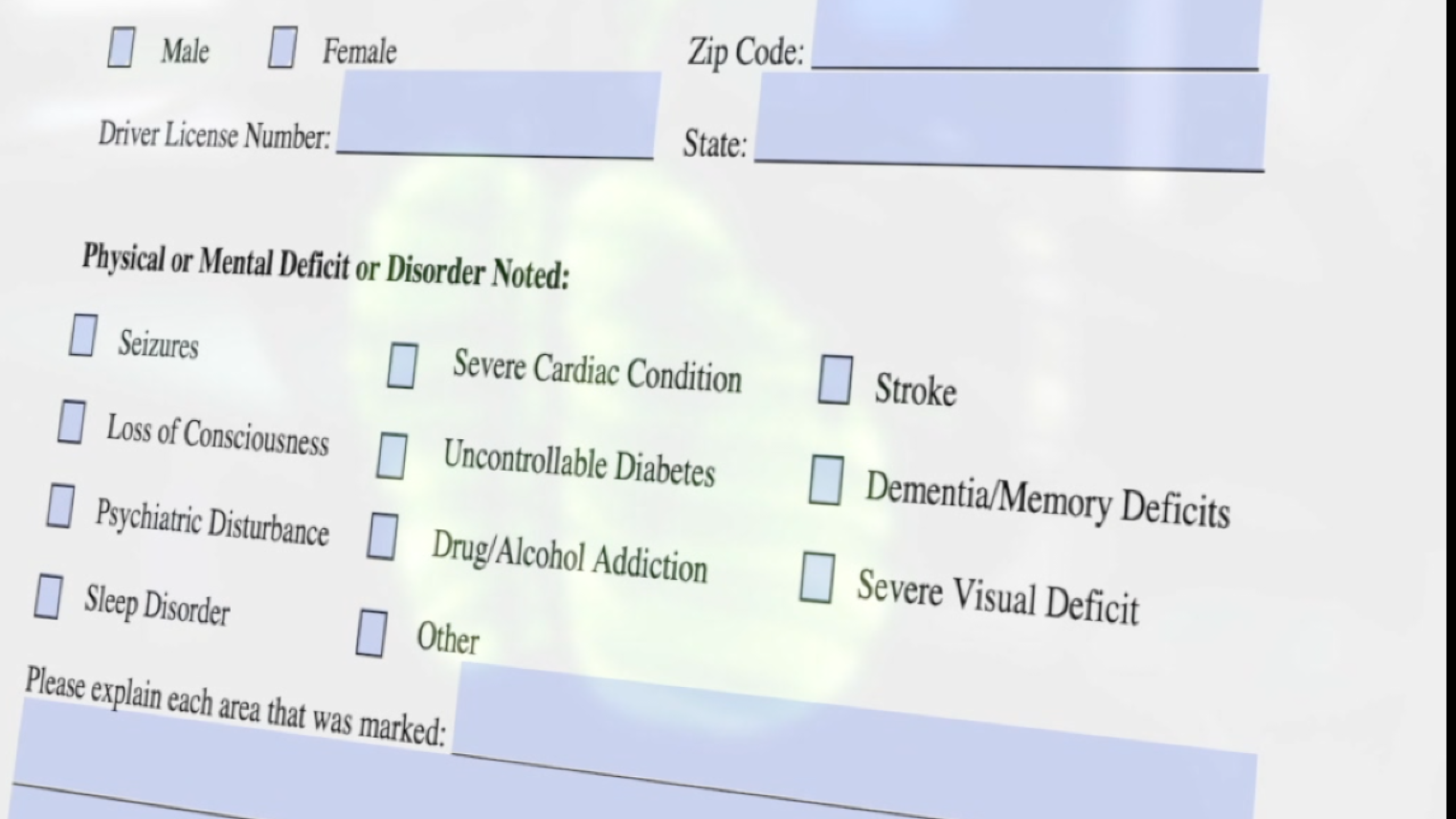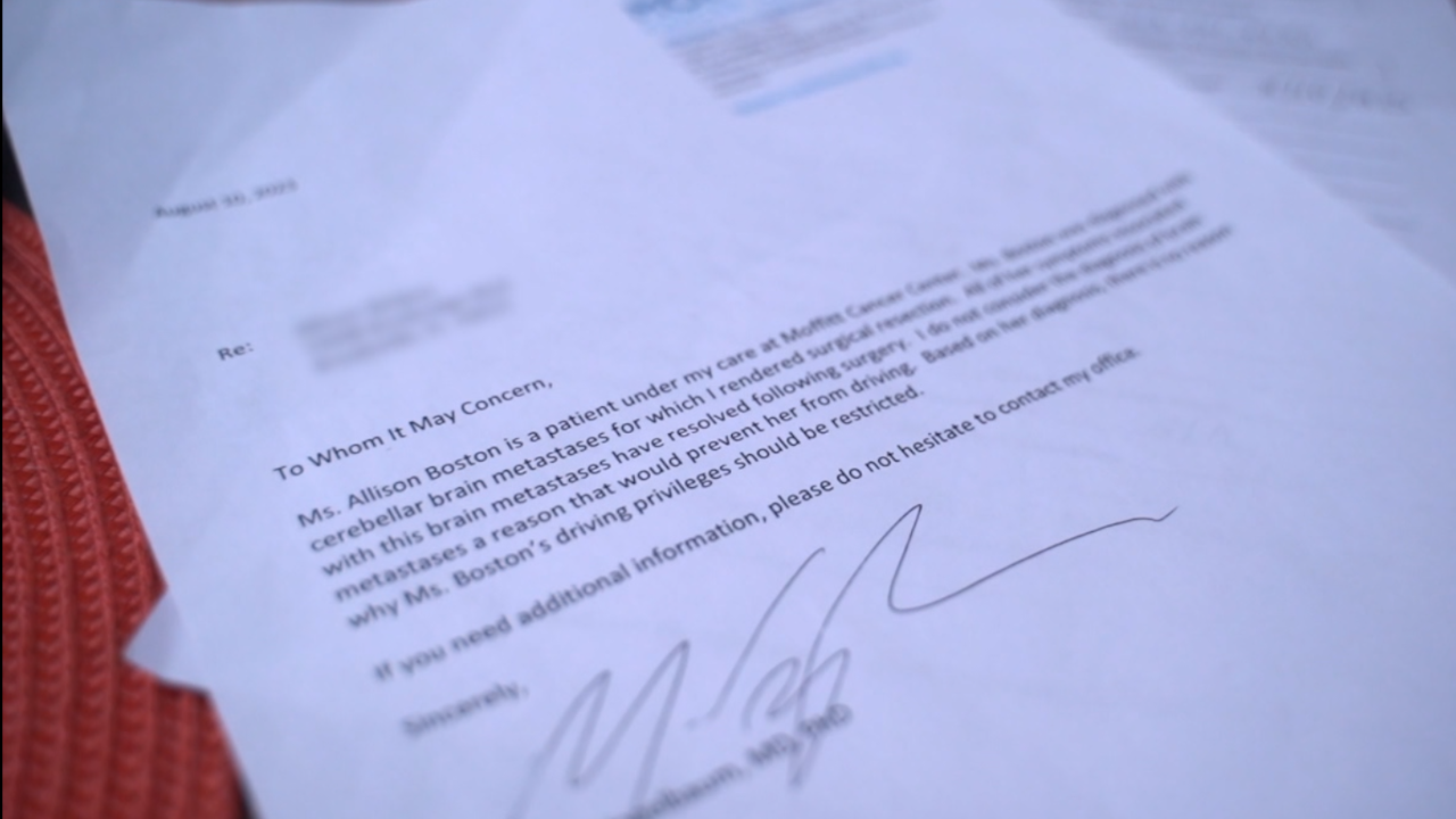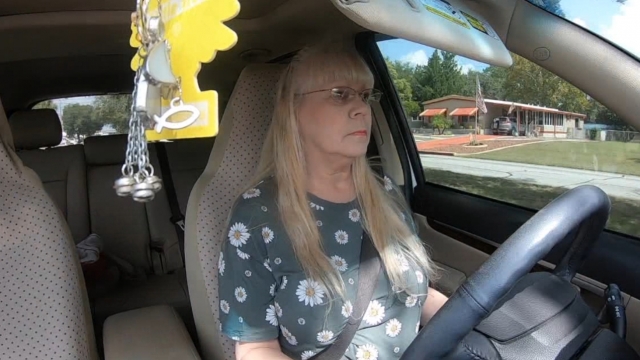Many of us have made the tough decision to take away car keys from elderly relatives who can no longer drive safely.
But a Florida woman said she’s been unfairly targeted by a state program to report dangerous drivers and get them off the road.
Allison Boston, a cancer patient living in Brooksville, has endured a monthslong battle with the Florida Department of Highway Safety and Motor Vehicles to keep her license, even though her doctor says she can drive.
Her license is crucial to her because she lives alone and has no family nearby to take her 65 miles to doctor's appointments at the Moffitt Cancer Center in Tampa.
An Uber ride to appointments costs more than $200 round trip, and Boston said volunteers from the American Cancer Society will only give her rides within a 10-mile area.

Boston listed as a "safe driver"
Boston earned the designation "safe driver" on her license thanks to her driving habits over half a century.
She has never had an accident, never had a speeding ticket, and has never even been pulled over by police.
But that may change soon since the Florida Department of Highway Safety and Motor Vehicles has threatened to revoke her license.
It started in June when Boston went to urgent care for dizziness.
An MRI showed cancer from her lung, which had been in remission, spread to her brain.
The physician’s assistant who treated her immediately filled out a form and sent it to the state saying she was no longer safe to drive.
"I begged him not to do that because I knew — you’re not even giving me a chance to go see a doctor or find out what’s going on or anything," Boston said.
Between 2017 and 2022, the Florida Department of Highway Safety and Motor Vehicles initiated 79,215 cases as part of its medical review process.
Medical Advisory Board sets standards
"DHSMV came up with rules to revoke somebody’s license for medical reasons," said Tampa attorney Leslie Sammis, whose firm often helps drivers navigate the process.
Physicians on the Medical Advisory Boardoversee the process of evaluating and setting medical and vision standards for Florida drivers.

The board can revoke driver's licenses for medical reasons, a process authorized under Florida Statutes intended to keep dangerous drivers off the road.
"The system itself is so secretive that I don’t think anyone really knows whether it works well or not," Sammis said.
She said it’s often difficult for her clients to reach people on the phone or get direct answers after they have been notified that they have been reported as having a medical condition that makes them dangerous to drive.
The state sent Boston a long list of questions to answer and send back to the board, intended to allow drivers to self-report medical issues.
"Let me go through some of this," Boston said. "Psychiatric, mental, alcohol and drug, no. Diabetes, no. Cardiac, something skeletal, no. Sleep disorder, no," she said, reading through the list.
She wrote "N/A" on every line.
After having surgery to remove her tumor, she said she no longer has symptoms or takes any medication.
Doctors must verify the driver's medical status
Boston’s neurologist at Moffitt Cancer Center vouched for her health and ability.
"He wrote a letter saying there’s no reason why my driving privileges should be suspended, revoked, or anything. There’s no reason why I can’t drive. I’m doing it now," Boston said.
Sammis said the doctor’s letter is the only reason she’s still driving.
"If your doctor isn’t willing to fill out the form to say you’re safe to drive, then they’ll just revoke your license permanently," Sammis said.
She said some of her clients don’t have primary care providers, making it challenging to find someone to sign their forms.
Sammis said anybody can make a report to the state claiming they have a medical condition, even if they don’t.
While the process is often used to report family members who are no longer safe drivers, it can also be used to retaliate against drivers.
"The people making the complaints, those are completely confidential. And they have immunity where you can’t find out who they are," she said.
Sammis charges clients $4,000 to assist them in getting licenses restored after a medical complaint has been made because it can be a long and challenging process.
"They literally can spend hours and hours and hours and a lot of work providing all their medical records," she said.
Boston said she’ll have to pass a vision test, a driving test and a written exam within 90 days of getting her last letter.
She only has a few weeks left.
"It’s a lot to study. It’s a lot to try to remember and all that," Boston said.
More than 50,000 licenses revoked
Between 2017 and 2022, 54,316 Florida drivers had their licenses revoked by the Medical Advisory Board.
Boston hopes that won’t happen to her.
"I don’t know how they have that much power. I get that they’re trying to keep everyone safe,” she said. “I don’t think it’s fair at all to put people through this. I just don’t. It’s horrible."
We contacted Florida AARP about the program.
A spokesperson said the organization has consistently championed the cause of driver safety, emphasizing that their stance is based on the importance of ensuring all drivers on our roadways remain safe, regardless of their age.
A spokesperson wrote in an email: “Driver safety should be assessed not on age but on a driver's actual abilities and performance. AARP advocates for regular evaluations that encompass an individual's cognitive and physical capabilities, as well as their overall driving competence. We firmly reject age-based restrictions on driving, firmly believing that one's age should not be the sole determinant of their driving ability.”
AARP points to important resources, including the AARP Smart Driver Course, which stresses defensive driving, and the We Need to Talk program.
To report a driver who you believe may be unsafe in Florida, use this form.
This story was originally published by Adam Walser at Scripps News Tampa.
Trending stories at Scrippsnews.com



